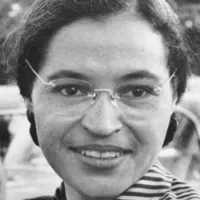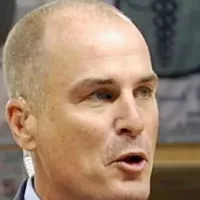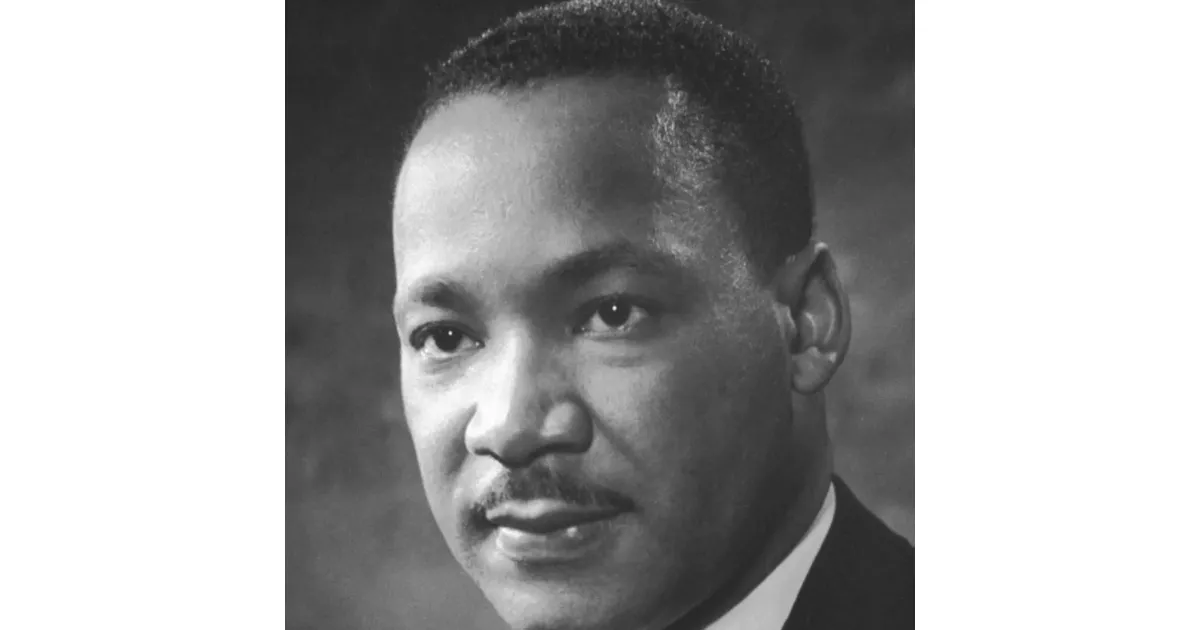A success timeline featuring the most significant achievements of Martin Luther King Jr..
Martin Luther King Jr. was a pivotal leader in the American civil rights movement from 1955 until his assassination in 1968. As a Baptist minister and political philosopher, he championed civil rights for people of color through nonviolent resistance and civil disobedience. His activism targeted Jim Crow laws and other discriminatory practices, aiming to achieve equality and justice for all Americans. King's commitment to nonviolence and his powerful rhetoric made him an iconic figure in the fight against racial segregation and discrimination.
April 13, 1944: King's First Public Speech
On April 13, 1944, during his junior year, King delivered his first public speech in an oratorical contest and won. On the bus ride home, he experienced racial discrimination when he and his teacher were forced to stand for white passengers.
1955: Montgomery Bus Boycott
In 1955, King oversaw the Montgomery bus boycott, a significant event in the fight against segregation.
1957: Awarded the Spingarn Medal from the NAACP
In 1957, Martin Luther King Jr. was awarded the Spingarn Medal from the NAACP.
March 7, 1961: Agreement on Desegregation of Lunch Counters
On March 7, 1961, a group of Black elders including Martin Luther King Jr. notified student leaders that a deal had been reached: the city's lunch counters would desegregate in fall 1961, in conjunction with the court-mandated desegregation of schools.
1963: Native American Contingent in the March on Washington
During the 1963 March on Washington, there was a sizable Native American contingent, including many from South Dakota and from the Navajo nation. This shows that in 1963, King would continue to attract the attention of Native Americans throughout the civil rights movement.
1963: Collaboration in the March on Washington
In 1963, Martin Luther King Jr. collaborated in the March on Washington, organized by Bayard Rustin. This role was controversial because King acceded to President Kennedy's wishes to change the march's focus. Kennedy, initially against the march due to concerns about civil rights legislation, later sought to ensure its success by mobilizing additional support.
March 1964: Joining Forces in St. Augustine, Florida
In March 1964, Martin Luther King Jr. and the SCLC joined forces with Robert Hayling's movement in St. Augustine, Florida, despite its advocacy for armed self-defense. They brought white Northern activists to St. Augustine to protest segregation.
October 14, 1964: King wins Nobel Peace Prize
On October 14, 1964, Martin Luther King Jr. was awarded the Nobel Peace Prize for his efforts in combating racial inequality through nonviolent resistance.
1964: Impact of "I Have a Dream" Speech
In 1964, Martin Luther King Jr.'s "I Have a Dream" speech was recognized as one of the finest in American oratory. The March on Washington and the speech helped to put civil rights at the top of the agenda of reformers and facilitated the passage of the Civil Rights Act of 1964.
1964: Enactment of Civil Rights Act
In 1964, many of the rights that Martin Luther King Jr. organized and led marches for, such as blacks' right to vote, desegregation, and labor rights, were successfully enacted into law with the Civil Rights Act of 1964.
1964: Civil Rights Act of 1964
In 1964, the Civil Rights Act was legislated, achieving pivotal legislative gains in the civil rights movement.
January 2, 1965: Defying Injunction in Selma
On January 2, 1965, Martin Luther King Jr. defied an injunction against gatherings by speaking at Brown Chapel in Selma, Alabama, temporarily halting civil rights activity until King defied it.
March 25, 1965: Completion of the March to Montgomery
On March 25, 1965, the march to Montgomery, Alabama, was completed. At the conclusion of the march on the steps of the state capitol, Martin Luther King Jr. delivered a speech that became known as "How Long, Not Long", stating that equal rights for African Americans could not be far away.
1965: Selma to Montgomery Marches
During the 1965 Selma voting rights movement, King helped organize two of the three Selma to Montgomery marches, advocating for voting rights.
1965: American Liberties Medallion Award
In 1965, Martin Luther King Jr. was awarded the American Liberties Medallion by the American Jewish Committee for his exceptional promotion of human liberty.
1965: Enactment of Voting Rights Act
In 1965, many of the rights that Martin Luther King Jr. organized and led marches for, such as blacks' right to vote, desegregation, and labor rights, were successfully enacted into law with the Voting Rights Act of 1965.
1966: Margaret Sanger Award
In 1966, Martin Luther King Jr. was awarded the Margaret Sanger Award by the Planned Parenthood Federation of America.
November 1967: Honorary Doctorate from Newcastle University
In November 1967, Martin Luther King Jr. received an honorary Doctorate in Civil Law from Newcastle University in the UK, becoming the first African American to be recognized by the institution in this way.
1967: King receives honorary degree from Newcastle University
In 1967, Martin Luther King Jr. made his final visit to the UK to receive an honorary degree from Newcastle University.
1967: King Nominates Nhất Hạnh for Nobel Peace Prize
In 1967, Martin Luther King Jr. nominated Thích Nhất Hạnh for the Nobel Peace Prize, praising his ideas for peace.
1968: Fair Housing Act of 1968
In 1968, the Fair Housing Act was legislated, achieving pivotal legislative gains in the civil rights movement.
1971: Cities and states start establishing annual holidays to honor King
Beginning in 1971, cities and states started establishing annual holidays to honor Martin Luther King Jr.
1971: Grammy Award for Best Spoken Word Recording
In 1971, Martin Luther King Jr. posthumously won a Grammy Award for Best Spoken Word Recording for "Why I Oppose The War In Vietnam".
1977: Posthumous Presidential Medal of Freedom
In 1977, Martin Luther King Jr. was posthumously awarded the Presidential Medal of Freedom, honoring his legacy.
November 2, 1983: Federal Holiday Created
On November 2, 1983, President Ronald Reagan signed a bill creating a federal holiday to honor Martin Luther King Jr.
January 20, 1986: First Observance of Martin Luther King Jr. Day
Observed for the first time on January 20, 1986, the Martin Luther King Jr. Day federal holiday took place.
1992: Holiday observation following 1992 George H. W. Bush proclamation
Following President George H. W. Bush's 1992 proclamation, the Martin Luther King Jr. holiday is observed on the third Monday of January each year.
1999: New Hampshire recognizes Martin Luther King Jr. Day
In 1999, New Hampshire was one of the last states to recognize the Martin Luther King Jr. Day holiday.
January 17, 2000: Martin Luther King Jr. Day Observed in All Fifty U.S. States
On January 17, 2000, for the first time, Martin Luther King Jr. Day was officially observed in all fifty U.S. states.
2003: Posthumous Congressional Gold Medal
In 2003, Martin Luther King Jr. was posthumously awarded the Congressional Gold Medal, recognizing his contributions.
2004: Congressional Gold Medal Awarded
In 2004, Martin Luther King Jr. and his wife, Coretta Scott King, were awarded the Congressional Gold Medal.
September 9, 2016: King Canonized by Holy Christian Orthodox Church
On September 9, 2016, Martin Luther King Jr. was canonized by Archbishop Timothy Paul of the Holy Christian Orthodox Church. His feast day was set as April 4, the date of his assassination.
Mentioned in this timeline

Donald John Trump is an American politician media personality and...

Jesse Jackson is an American civil rights activist politician and...

John F Kennedy JFK was the th U S President...

Rosa Parks an American civil rights activist is renowned for...
The Union of Soviet Socialist Republics USSR existed from to...
India officially the Republic of India is a South Asian...
Trending

30 minutes ago Sloane Stephens and Jozy Altidore Announce Divorce After Four Years of Marriage

30 minutes ago Jay Bilas Praises UNC; Dixon Struggles; Davis's Job May Be Safe

31 minutes ago Timothée Chalamet and Matthew McConaughey Reunite, Discuss 'Interstellar' and Share Memories.

1 hour ago Cameron Boozer: Duke Forward, Elite Numbers, and Wooden Award Favorite

1 hour ago Josiah Harrell's Sensational UFC Debut After Rare Brain Disease Diagnosis: A Houston Story

2 hours ago Rajah Caruth shines at JR Motorsports; Mayer takes pole; Mears avoids crash.
Popular

Jesse Jackson is an American civil rights activist politician and...

Barack Obama the th U S President - was the...

Bernie Sanders is a prominent American politician currently serving as...

Ken Paxton is an American politician and lawyer serving as...

Michael Joseph Jackson the King of Pop was a highly...
Randall Adam Fine is an American politician a Republican who...
